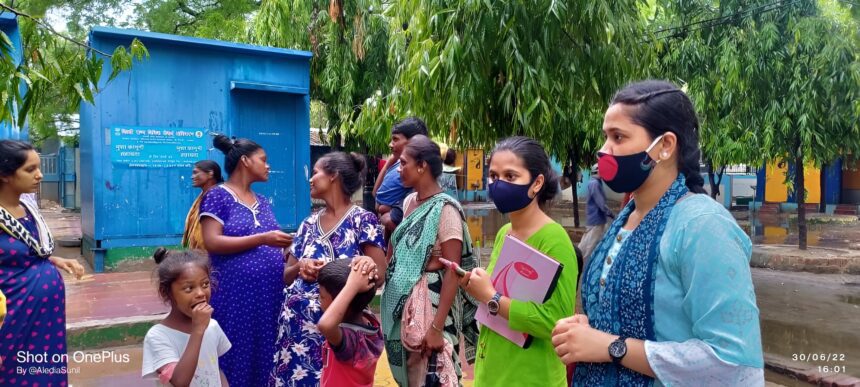A report titled “Invisible Within the System? Towards Gender-Responsive Shelter Homes for Women in Delhi” has unveiled significant gender disparities and systemic neglect in the shelter homes located in the national capital. Released by the Centre for Holistic Development (CHD) on October 12, 2025, in observance of World Homeless Day, the study highlights that many of the thousands of women residing in Delhi’s night shelters are deprived of fundamental dignity, hygiene, and access to essential welfare services.
The 28-page report, which is the result of extensive research conducted across eight districts and 22 women’s shelters, characterizes the situation as a “silent humanitarian crisis.” It notes the unsafe and unsanitary conditions within these facilities, which fail to consider the unique needs of homeless women.
According to the findings, government initiatives such as the Scheme of Shelters for Urban Homeless (SUH) under the Deendayal Antyodaya Yojana have been inadequately implemented. As a result, much of Delhi’s estimated 32,000 homeless women remain overlooked by both policy frameworks and public concern.
The research underscores the severe lack of essential amenities for women in shelters. Many facilities are reported to have inadequate access to functional toilets, clean water, and safe living spaces. Women in these shelters indicated that toilets were cleaned only weekly, with some being locked or unusable altogether.
Moreover, a notable number of respondents reported lacking access to dustbins or proper menstrual hygiene facilities, forcing them to resort to unsanitary alternatives. One resident from a shelter in Sarai Kale Khan remarked, “We have to choose between buying food and sanitary pads.”
Concerns around security and privacy were also prevalent. Although many women claimed to “feel safe,” the report found that most shelters lacked proper gates, functional boundary walls, or personal storage facilities. Many women sleep beside their belongings to guard against theft.
The study also illustrates the ongoing denial of access to welfare benefits. The majority of respondents were unaware of the social security schemes for which they were eligible. Only a small number reported receiving pensions or financial assistance.
Economic insecurity exacerbates the crisis, with many women in shelters relying on meager incomes from begging or unstable daily-wage jobs. A limited number have received vocational training or employment support.
The report depicts the lives of these women as an “intersection of poverty, gender, and invisibility,” a situation sustained by governmental neglect and the absence of gender-aware planning.
Sunil Kumar Aledia, Executive Director of CHD, stated that the findings reflect a broader failure in policy-making. “Despite decades of promises, women continue to live invisibly within the system. Homelessness for women is not just about lacking a roof; it’s about the denial of dignity, safety, and identity,” he told Maktoob.
The report also highlights a model shelter at Geeta Colony, where improved cleanliness, staff accountability, and safety measures have significantly enhanced living conditions. CHD argues that this example illustrates the potential for positive change when there is a commitment to humane planning.
The report urges the Delhi government and the Delhi Urban Shelter Improvement Board (DUSIB) to take immediate action, including: 1) integrating gender-sensitive guidelines into existing schemes, 2) instituting independent audits, and 3) transforming shelters into transitional spaces that provide access to training, healthcare, and social support.
Additionally, it recommends mandatory training for shelter staff and the establishment of a comprehensive grievance redressal mechanism to ensure accountability.
In closing, the report emphasizes that “No woman should have to trade her dignity for shelter.” It advocates for a transformation of Delhi’s shelters from mere survival spaces into environments that promote recovery, safety, and empowerment.
Aledia stressed the urgency of reform: “A shelter is not a warehouse; it must be a space that actively responds to women’s specific needs. Gender-responsiveness must be embedded in every level of policy and practice.”
He further noted that shelters should serve as transitional hubs that connect women with skill training, employment, and livelihood opportunities to break the cycle of generational homelessness. “Accountability and dignity must be non-negotiable,” Aledia asserted, highlighting the necessity of independent audits, accessible grievance systems, and thorough caregiver training.
“Measuring what you manage is essential. Collecting gender-disaggregated data is the first step towards evidence-based planning and substantive reform,” he concluded.
Aledia called for collective action from the Delhi government, DUSIB, civil society, and the public, stating, “No woman in our city should be forced to live invisibly. Every shelter must become a space of safety, dignity, and opportunity.”
Tags: Delhi shelter homes, women’s safety, homeless women support, shelter home report, women empowerment
Hashtags: #Report #exposes #Delhis #shelter #homes #fail #women










